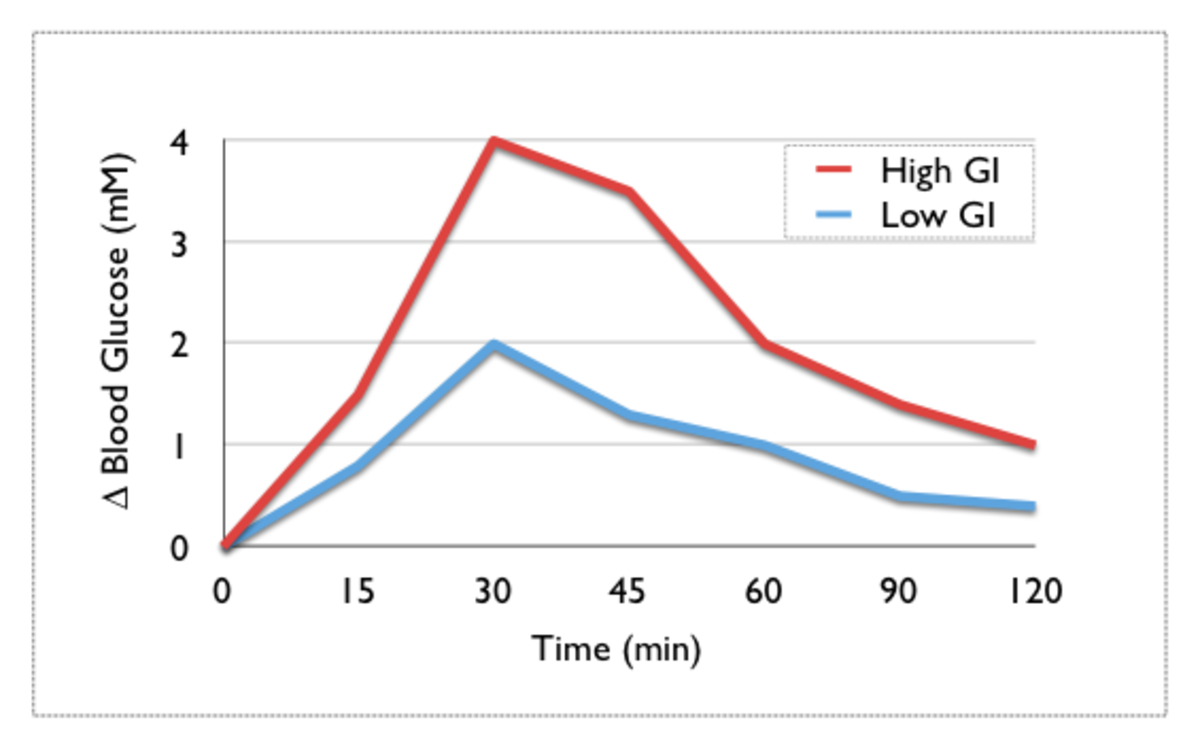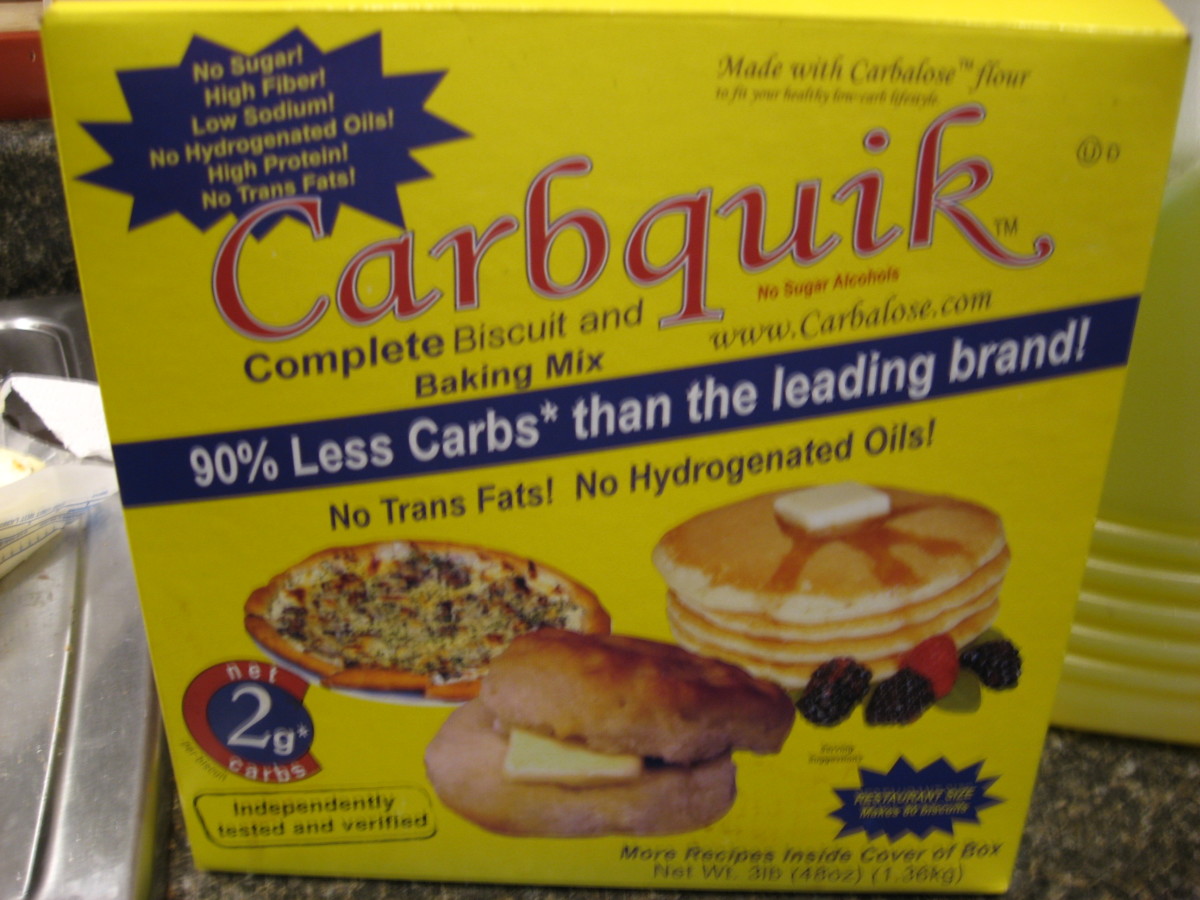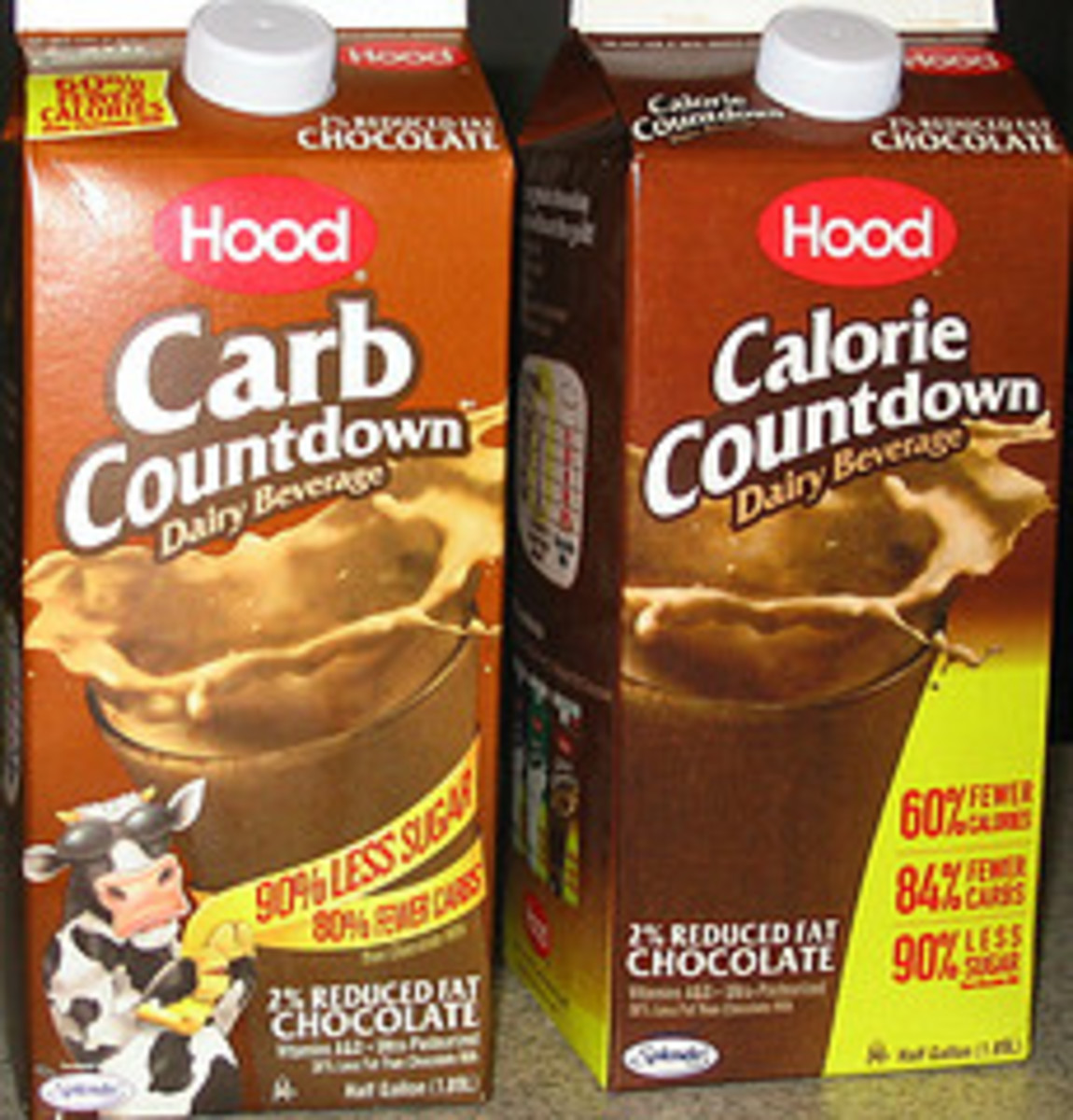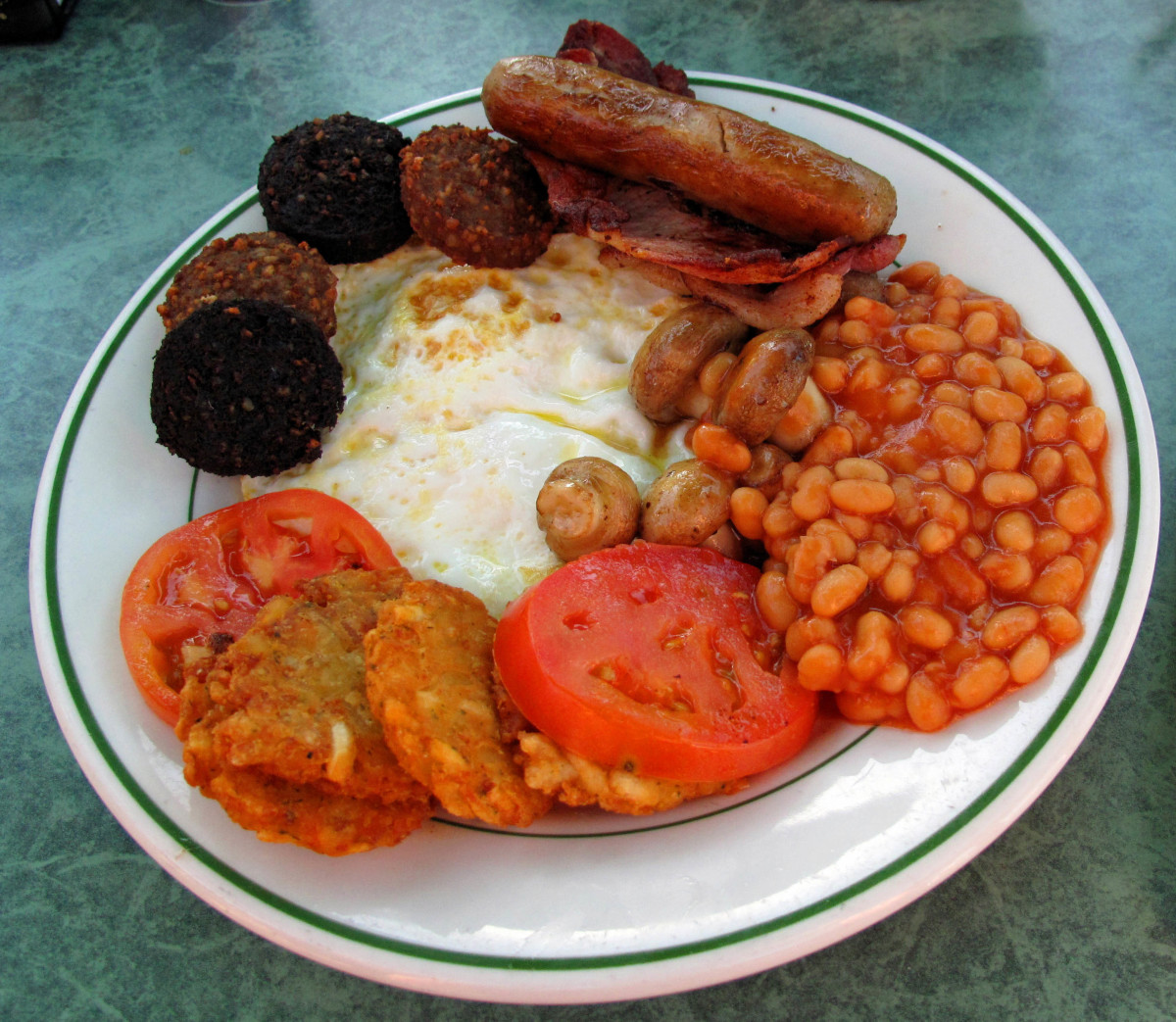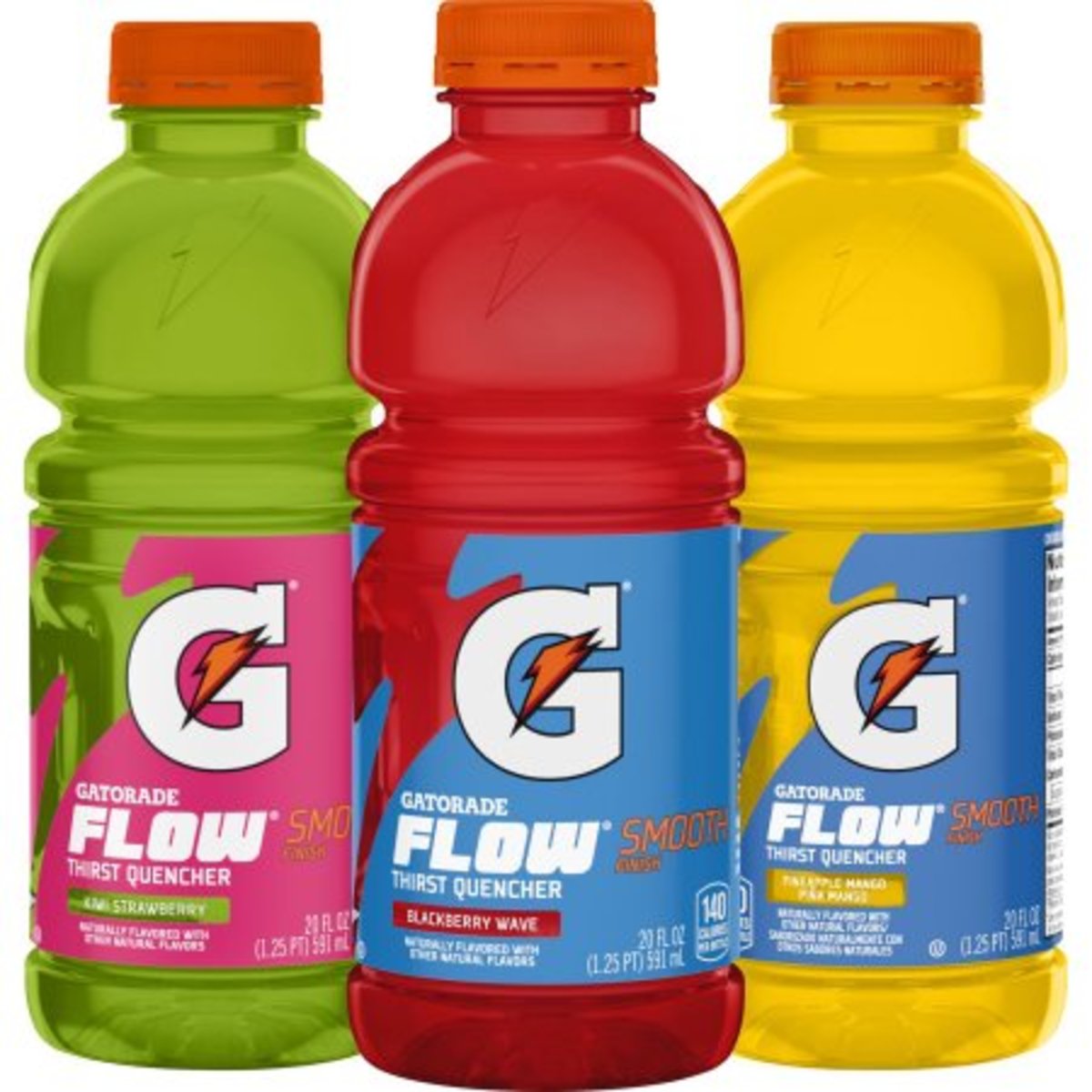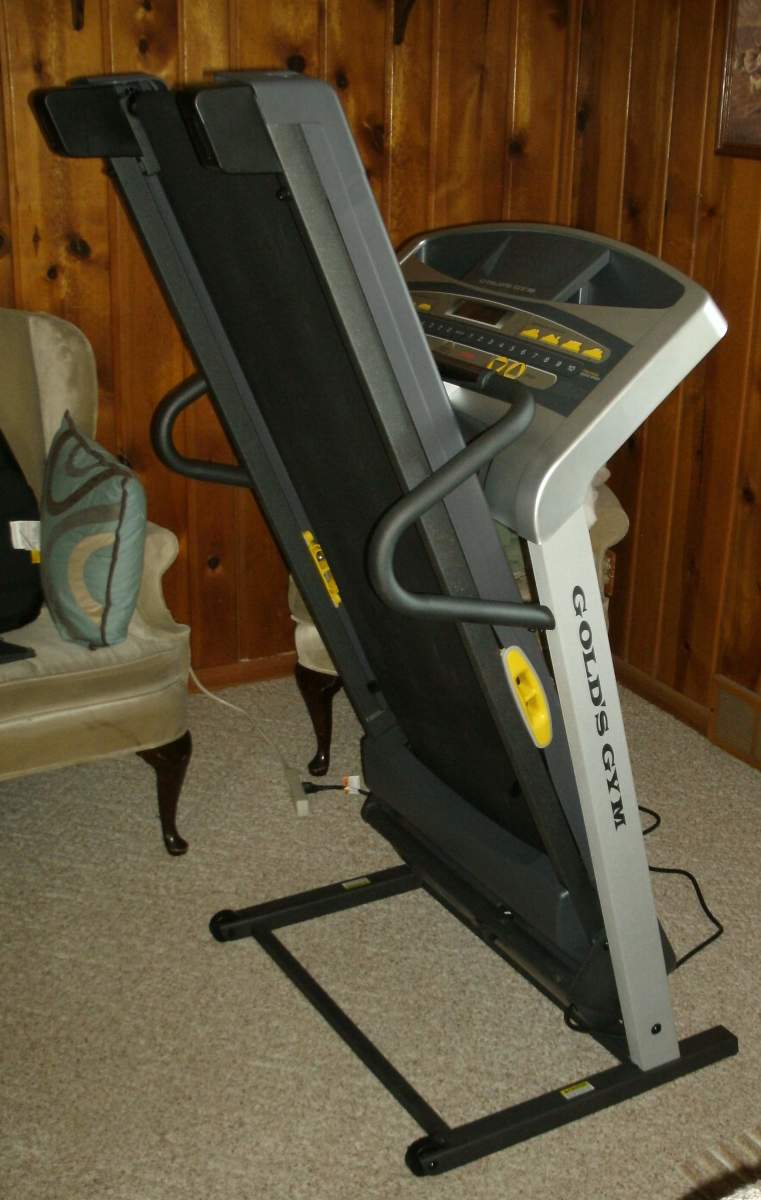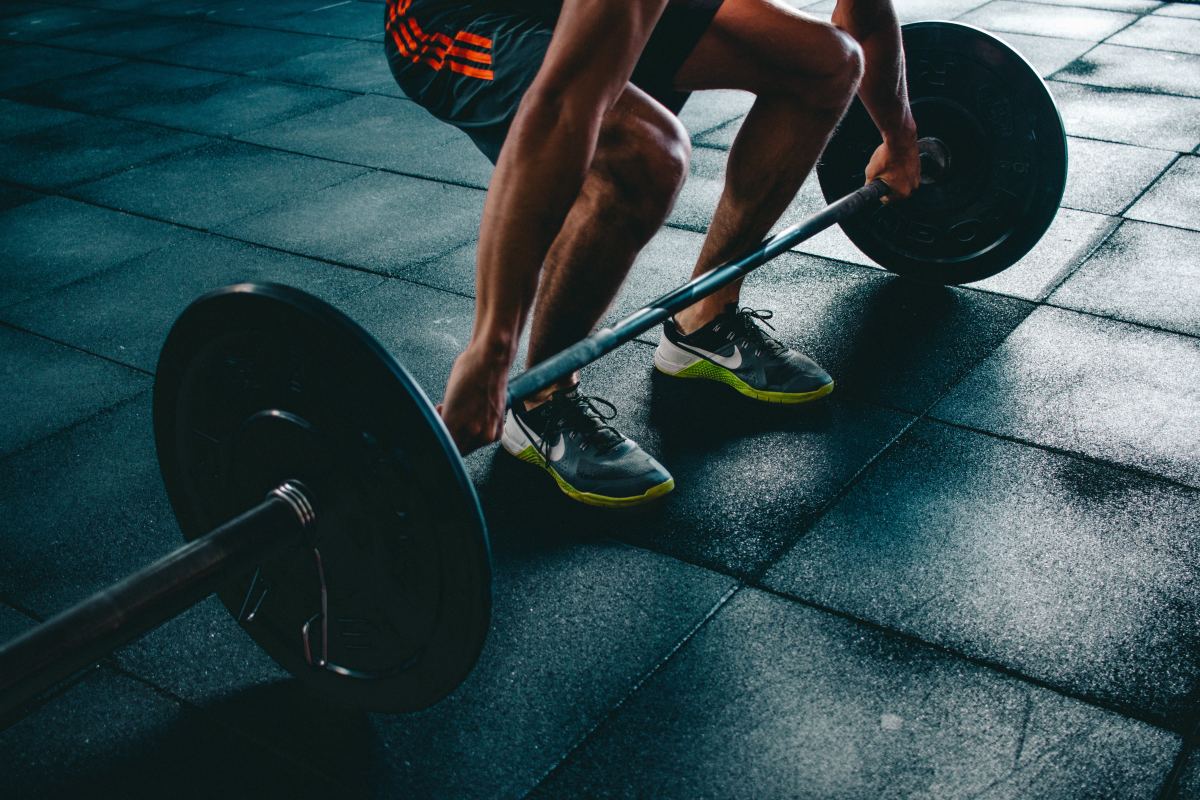Gatorade - Make Your Own Low Carb Sports Drinks
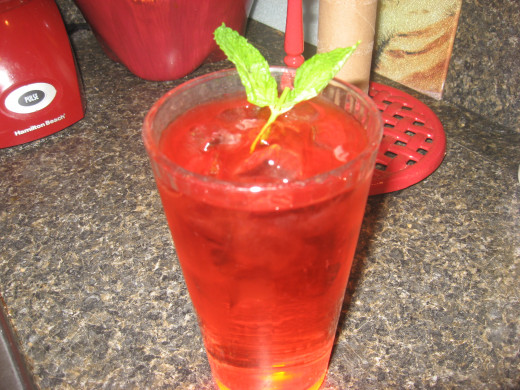
Sports Drinks
Do you drink Gatorade or some other sports drinks on a regular basis? For some people, sports drinks have largely replaced plain water as the beverage of choice during workouts. You see folks everywhere carrying their bottle of sport drink with them to the gym or attached to their side during a jog or run. You often see people sipping on these sports drinks all day in an effort to be healthier. What's the real deal when it comes to sports drinks? Are these drinks more healthy and beneficial than water? Well, yes and no. For those involved in strenuous exercise, yes, the sports drinks are more beneficial than water. Most sports drinks contain fairly high levels of carbohydrates, though, and I don’t need those on low carb diets. I do need the electrolytes and fluids sometimes, however. I had to find a low carb version of Gatorade, so I began making my own low carb sports drinks.
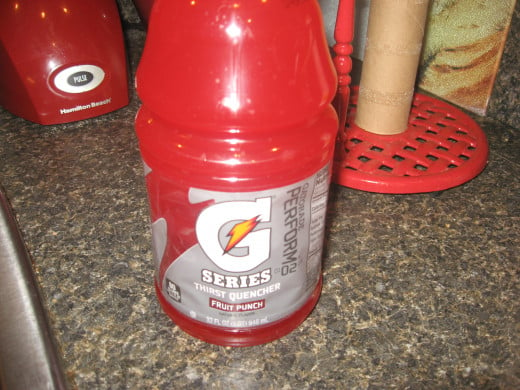
Gatorade
One of the most popular sports drinks in the world is Gatorade. Gatorade was “invented” in the mid-sixties at the University of Florida, for the Florida Gators athletes. The head coach was worried about how much fluid and electrolytes his football players were losing with strenuous activity under the hot Florida sun, so he asked medical researchers at the University for help. They came up with a beverage that included water, lemon juice, sugar, sodium, phosphate, and potassium and called it Gatorade.
The sports drink gained popularity quickly after the Florida Gators won the 1967 Orange Bowl. Some of the team members claimed that Gatorade helped them win the game, and other athletes and coaches took notice. Gatorade began to be commercially produced, and it became the official drink of the National Football League. Today, Gatorade is available in eighty countries. It’s the most popular sports drink in the United States and accounts for three-fourths of all sports drinks sold.
Gatorade isn’t used as just a sports drink. It can also help replace fluids and electrolytes lost through diarrhea and vomiting. In fact, our pediatricians always recommend giving it to the grandkids when they’re sick. I definitely see the reasoning behind this, but for me, Gatorade has too much sugar. I follow a low carb diet, and most sports drinks are loaded with sugar and carbohydrates.
Electrolytes:
Low Carb Sports Drinks
Why do most sports drinks contain a lot of sugar? Glucose is needed by the muscles, and carbs also help the body retain more water. If you’re on a low calorie or low carb diet, however, those grams of carbs and calories can really add up. But don’t you need the glucose to fuel your body? That’s a widely debated point. Once your body uses up its stores of glucose, it begins to burn fat as fuel, and if you’re dieting, that’s what you want to happen. You want to burn off those extra pounds of fat, right? After a few weeks of following low carb diets, your body will most likely get used to turning to its fat stores for energy. Believe me – I’ve been there and done that. At the very beginning of low carb diets, I usually feel tired and sluggish. After a week or two, however, I feel energized. I’m not a doctor, but I think the extra energy “turns on” when my body gets used to burning fat and largely going without simple carbs.
Should you drink sports drinks while dieting? Not unless you’re going to be exerting a lot of physical energy for more than 30 minutes. Even so, the drinks should be imbibed during and after the workout only – not sipped all day. Unless you’re extremely active, you might as well drink soft drinks. Some people are under the assumption that just drinking a sports drink will improve their health, but that’s not actually the case. The drinks are designed to replace what you’re losing through exercise and sweating. If you’re sitting in the air conditioning and watching TV, you’re not losing anything that needs to be replaced – unless you’re ill.
On the other hand, you don’t always have to be engaging in long periods of strenuous exercise to lose fluid and electrolytes. If you’re moderately active in hot, humid conditions, you can produce a lot of sweat. When I used to play tennis, I’d lose several pounds after just one game in the hot southern summers. I’m sure most of the weight loss was through sweating. I wasn’t a tennis pro, and most of the games were fairly relaxed and more in the moderate exercise category than in the demanding or extreme category of physical exertion.
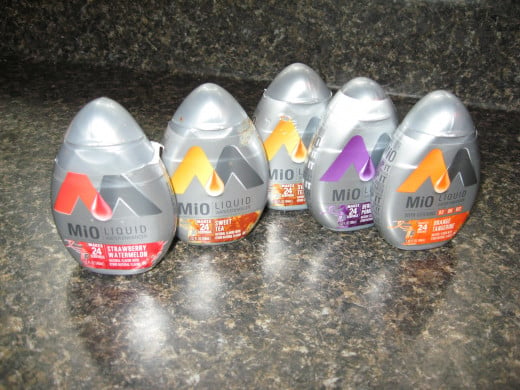
Gatorade – make your own!
It’s easy to make your own version of Gatorade. If you’re an athlete and need sports drinks to keep you at the top of your game, you can make your own instead of paying a high price for the name-brand drinks. All you need is water, table sugar, regular salt (because of the sodium), and Lite salt (because of the potassium it contains). To get more potassium, along with some healthy vitamin C, you might want to add one or two tablespoons of lime or lemon juice. For more flavor, you might want to mix the salts and a small amount of sugar to fruit juices instead of water. You can also add flavored drink mixes, like Kool-Aid. The Mio water enhancers work well for this purpose, too. In fact, I prefer using Mio because it blends easier and you have more control over the flavor. These homemade sports drinks will save you money and still benefit your body.
For a low carb Gatorade – like drink, use an artificial sweetener. Stevia is often considered the healthiest artificial sweetener, so you might want to use that. Personally, I use granulated Splenda. To make the drink, empty any flavor of Kool-Aid into a two-quart bottle. Use a small packet of unsweetened Kool-Aid. Add two tablespoons lime juice, 1/2 teaspoon table salt, 1/2 teaspoon Lite salt, and sweetener. By the way, I don’t use a lot of Splenda here. I find sports drinks to be more refreshing and more thirst-quenching when they’re not overly sweet. Fill the bottle with water and shake until all the dry ingredients have dissolved. Keep the jug of low carb sports drink in the fridge until you need it. By the way, if you use Mio in your homemade Gatorade, you probably won't need to add more sweetener.
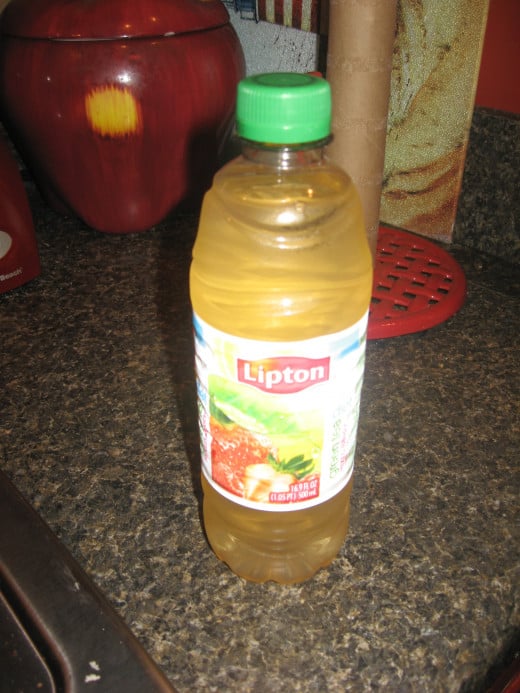
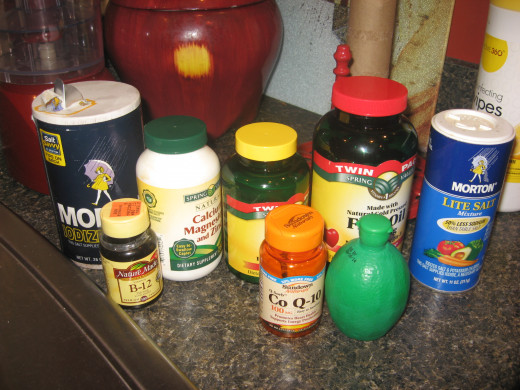
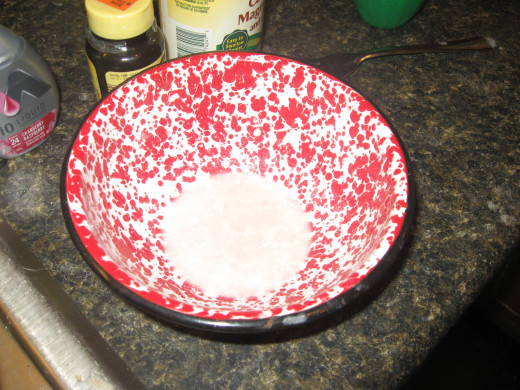
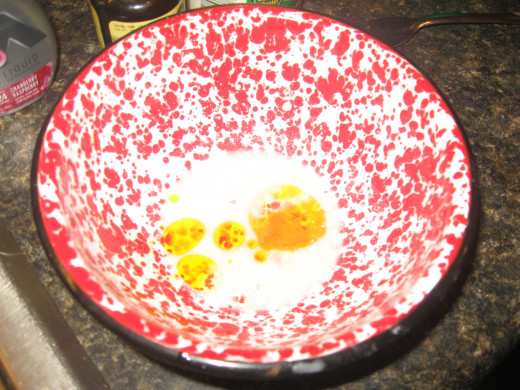
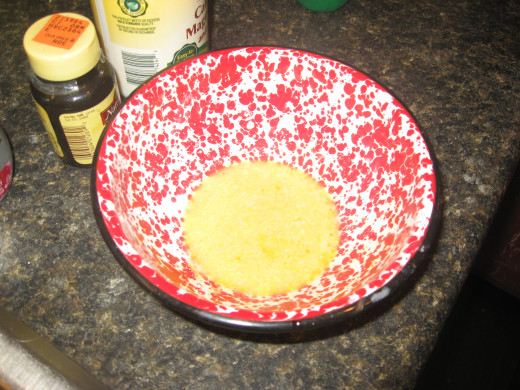
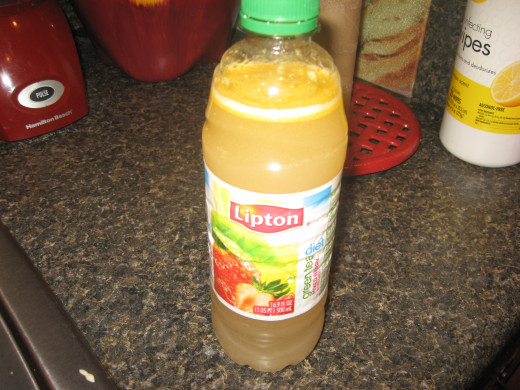
Green Tea
I’m sure you’ve heard about or read about green tea health benefits. I have, so I started drinking it on a daily basis. I buy the bottled diet green tea produced by Lipton. I buy a case of the 16.9-ounce bottles and keep them in the refrigerator. The diet green tea comes in different flavors. Sometimes I buy the citrus flavor, and sometimes I buy the mixed berry. One serving delivers no calories, no sugars, no fat, and no carbs, but it does deliver all the vitamin C you’ll need in a day. I like the tea, but I decided that I could make it even healthier while killing two birds with one stone at the same time.
I take dietary supplements for several reasons. Some of them are quite large, and I have a real problem swallowing pills and big capsules, so I have to chew them or squeeze the liquid contents into my mouth. Some of them taste pretty nasty, while others are very gritty. Taking these supplements had always been a dreaded chore for me. I decided to add the supplements to a bottle of green tea to see how the concoction would work. It actually has a pleasant flavor, and there’s no grit! It doesn't taste oily, either, probably because of the lime juice. I can't believe I didn't think of this before now! My healthy green tea recipe is below, but you can tweak it to address your own taste preferences. You might want to add ginger, cinnamon, cloves, sugar-free fruit flavored syrup, or crushed mint leaves.
Rate my recipe! Thanks!
Cook Time
Ingredients
- 1 caplet calcium, magnesium and zinc
- 1 vitamin B-12 tablet
- 1 - 2 tablespoons lime juice
- 2 flax oil gel caps (1200mg each)
- 2 fish oil gel caps (1000mg each)
- 1 CoQ10 gel cap
- Splenda, to taste
- 1 bottle diet green tea (16.9 ounces)
Instructions
- In a small bowl, crush calcium and B-12 tablets together until fine.
- Add lime juice and form a smooth paste. Add Splenda, if desired.
- Squeeze flax oil, fish oil, and CoQ10 caps into bowl and stir.
- Pour ingredients into bottle of green tea and shake vigorously. Chill until cold.
- You can make this a sports drink by adding a pinch of salt and a pinch of Lite salt.
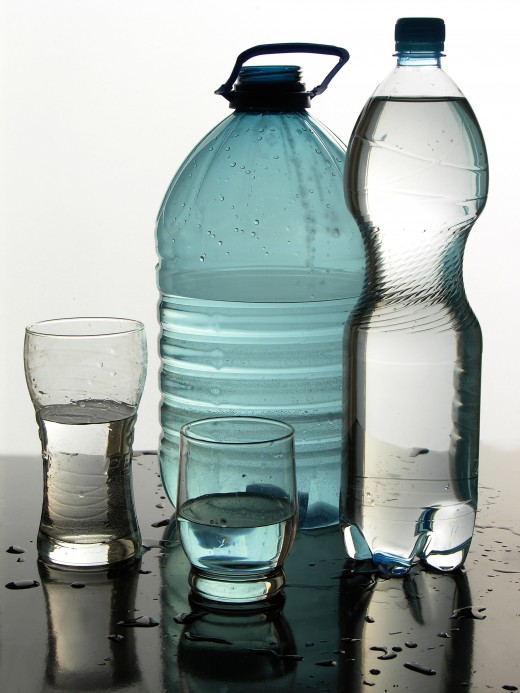
Sports Drinks vs. Water
What’s my take on sports drinks vs. water? I can see both sides of this issue. Mankind survived for millions of years before Gatorade came along. And I think we can all agree that for the most part, our ancient ancestors were much more physically active than we are today. Just surviving from day to day probably required more exercise than most of us get in a week. How did the poor guys survive without their sports drinks? Didn’t they need fluids and electrolytes? Yes, they did, and they kept their bodies hydrated with plain water. They got their electrolytes from their diet.
I can see the health benefits of sports drinks, but I have a problem with the sugar. Commercial sports drinks can be packed with carbs, in the form of sugars. In fact, just eight ounces of a typical sports drink contains eight teaspoons of sugar. These carbohydrates help the body retain fluids and send energy to the muscles in the form of glycogen. The sweet drinks also contain electrolytes – minerals the body needs to function. The electrolytes most often found in sports drinks are sodium and potassium.
When should Gatorade or other sports drinks be used? During vigorous physical activity that will last for a period of more than thirty minutes. The drinks should also be consumed after such exercise. Drinking the sports drinks before activity could actually have a detrimental effect. The sugar in the drinks raises the insulin level in the bloodstream. Once the exercise begins, the insulin sends glucose to the muscles. Then the body halts the production of glucose, resulting in hypoglycemia. This low blood sugar level can inhibit the athlete’s performance and can even make him feel physically ill.
For those not involved in extended periods of vigorous exercise, water is better. It’s calorie free, and it doesn’t contain artificial colors, sodium, caffeine, and preservatives like some sports drinks do. You need to drink about an ounce of water for every two pounds of body weight. For example, if you weigh 120 pounds, you need 60 ounces of plain water every day. Before exercising, drink about a cup of water. Sip on the water during your workout of less than 30 minutes, and drink another 8 ounces after exercise. The water is all you need to keep your body hydrated. For more vigorous exercising, try my low carb version of Gatorade.

